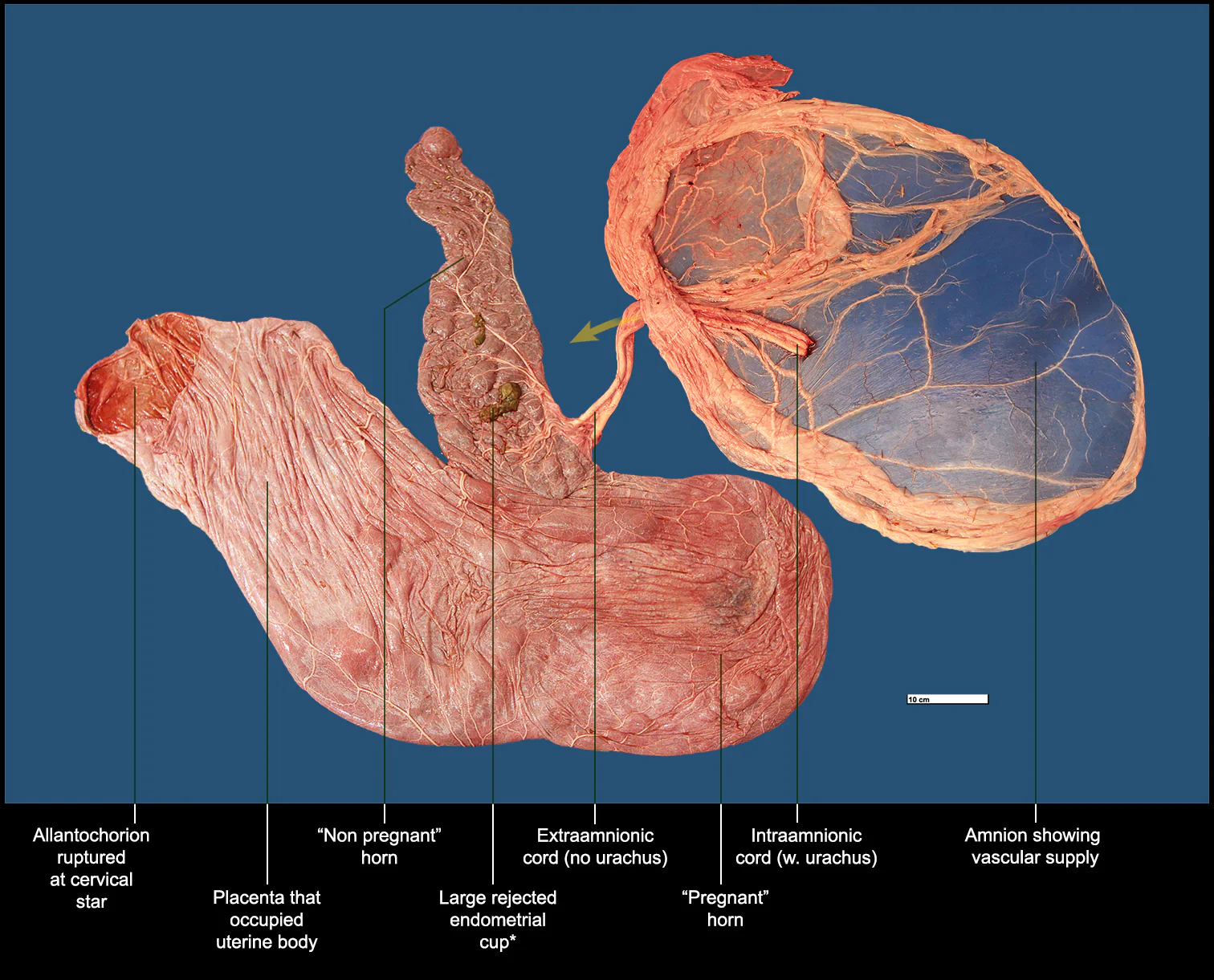Parturition Lab
1/39
There's no tags or description
Looks like no tags are added yet.
Name | Mastery | Learn | Test | Matching | Spaced |
|---|
No study sessions yet.
40 Terms
Parturition is derived from Latin word parturire which means
to be ready to bear young
Does parturition involved various hormones
yes (relaxin, oxytocin, prolactin, P4, E2)
T/F: different species have adapted to various birthing repro schemes
true
Gestational length of equine
11 month
Gestational length of bovine
9 months
gestational length of ovine/caprine
5 months
Porcine gestational length
112-114 days (3 months, 3 wks, 3 days)
What species have a diffuse placental type
equine and porcine
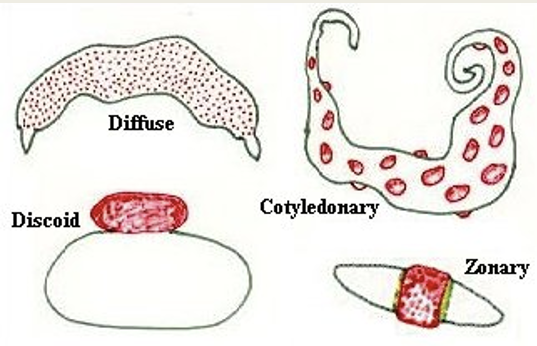
What species have a cotyledonary placenta
bovine, caprine, ovine
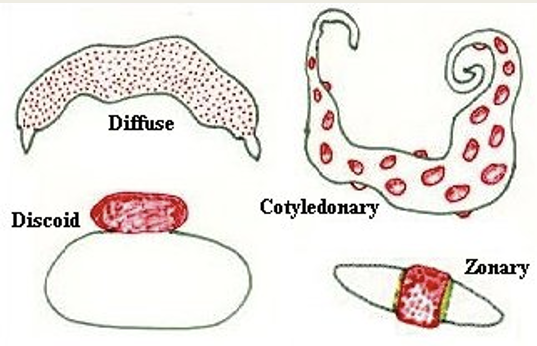
Humans/primates have a what type of placenta
discoid
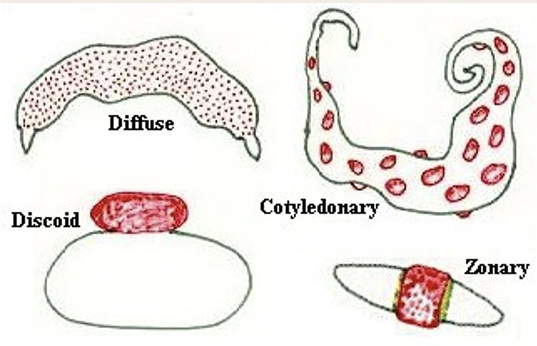
dogs and cats have what type of placenta
zonary
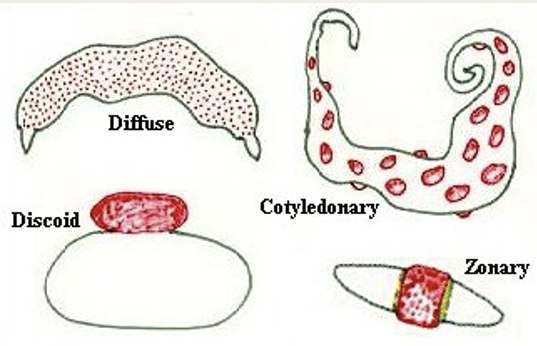
T/F: The inner cell mass is fetus and outside is the placenta
true
T/F: No blood on amniotic sack
true
Stage 1 of parturition includes all the following EXCEPT
a) no external changes seen
b) placental attachment is less “intimate”
c) birth canal prepares
d) expulsion of fetus
e) animal becomes uncomfortable
f) contractions begin while fetus orients itself in correct direction
d) expulsion of fetus
Time frame of stage 1 in cows
2-6hrs
Time frame of stage 1 in mares
1-4hrs
Time frame of stage 1 in ewes
2-6hrs
Time frame of stage 1 in sows
2-12hrs
Cervix during Stage 1 of parturition:
loosening occurs to alteration in [what]
cervix dilates w/ external os prior to internal os, [what shape is formed]
vagina and [what] form a continuous canal
shortening and dilation of [what]
collagen composition
cone shape is formed
uterus
internal os
What part of the fetus’ body is the hardest to push out in each species
cow: hind legs/ butt
horse: shoulders
humans: head
What stage of parturition does this describe
expulsion of fetus
in species w/ multi young, this can’t be separated from stage 3
allantochorionic sac ruptures
fetal head appears
Stage 2
T/F: mare, cow, and ewe usually have the fetus delivered in anterior presentation, dorsal position, and extended posture
true
T/F: sows can have up to 40-45% in normal presentation in stage 2
true
Duration of stage 2 of parturition
cow
mare
ewe
sow
cow: 70 min
mare: 17min
ewe: 1 hr
sow: 4 hr
Stage 3 of parturition
contractions continue for expulsion of placenta
afterbirth normal eaten by animals
cleaning up/scent
nutrients
suckling usually influences expulsion of afterbirth
Duration of stage 3 in cow
6-12 hrs
Duration of stage 3 in mare
30 min-3hr
Duration of stage 3 in ewe
2-3hrs
Duration of stage 3 in sow
4hrs
what are 5 problems that can come up during parturition
incorrect orientation
incorrect placentation
large birth wt
length of time during stages
weather climate
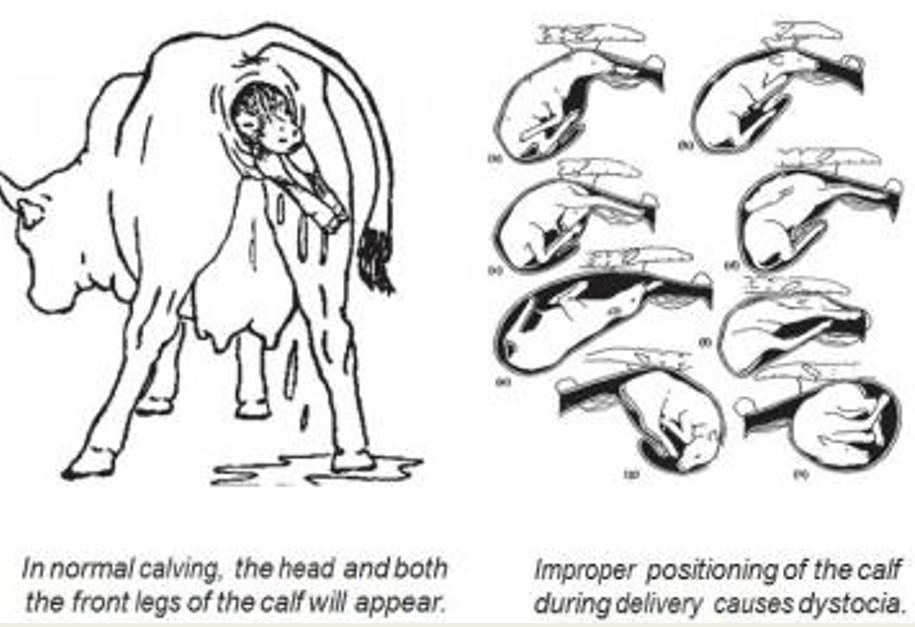
Dystocia (difficult delivery)
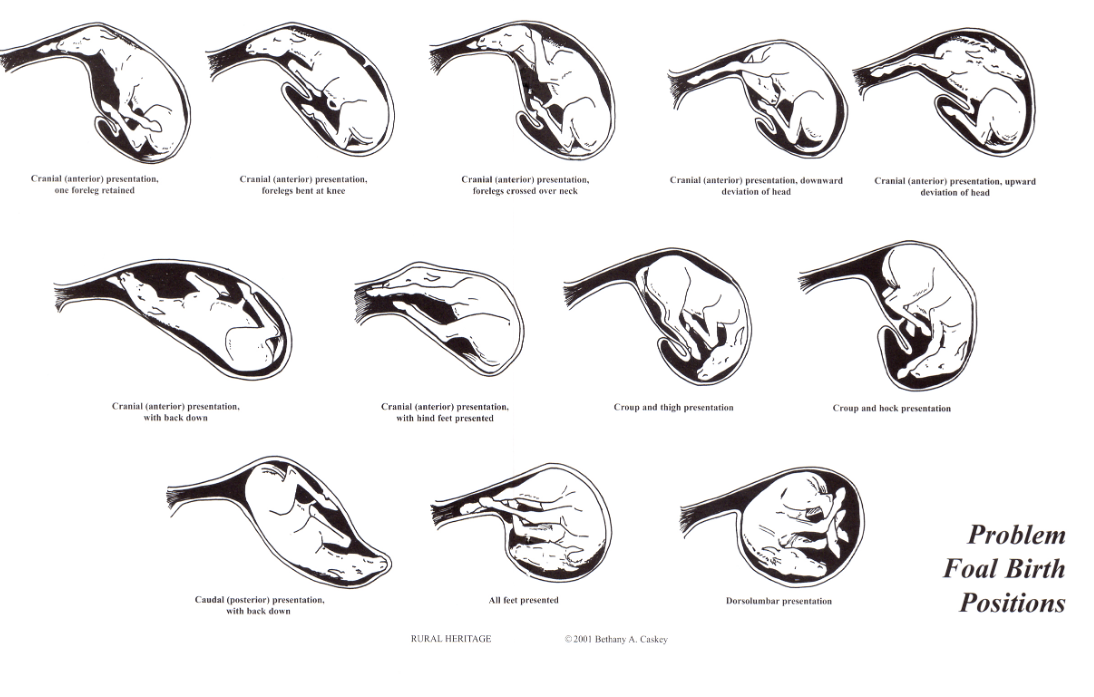
Red bagging
portion of placenta has detached from uterine wall prematurely, reducing or eliminating exchange of nutrients to fetus still inside mare
Prolapsed uterus
sagging or slipping of uterus from its original position
If the placenta is retained after birth, what will it cause
an infection
T/F: pulling the cord is good way to deliver the placenta
false; it will cause prolapse of uterus
what are 2 hormones we can give to expel placenta
oxytocin: uterine contractions
PGF2 alpha
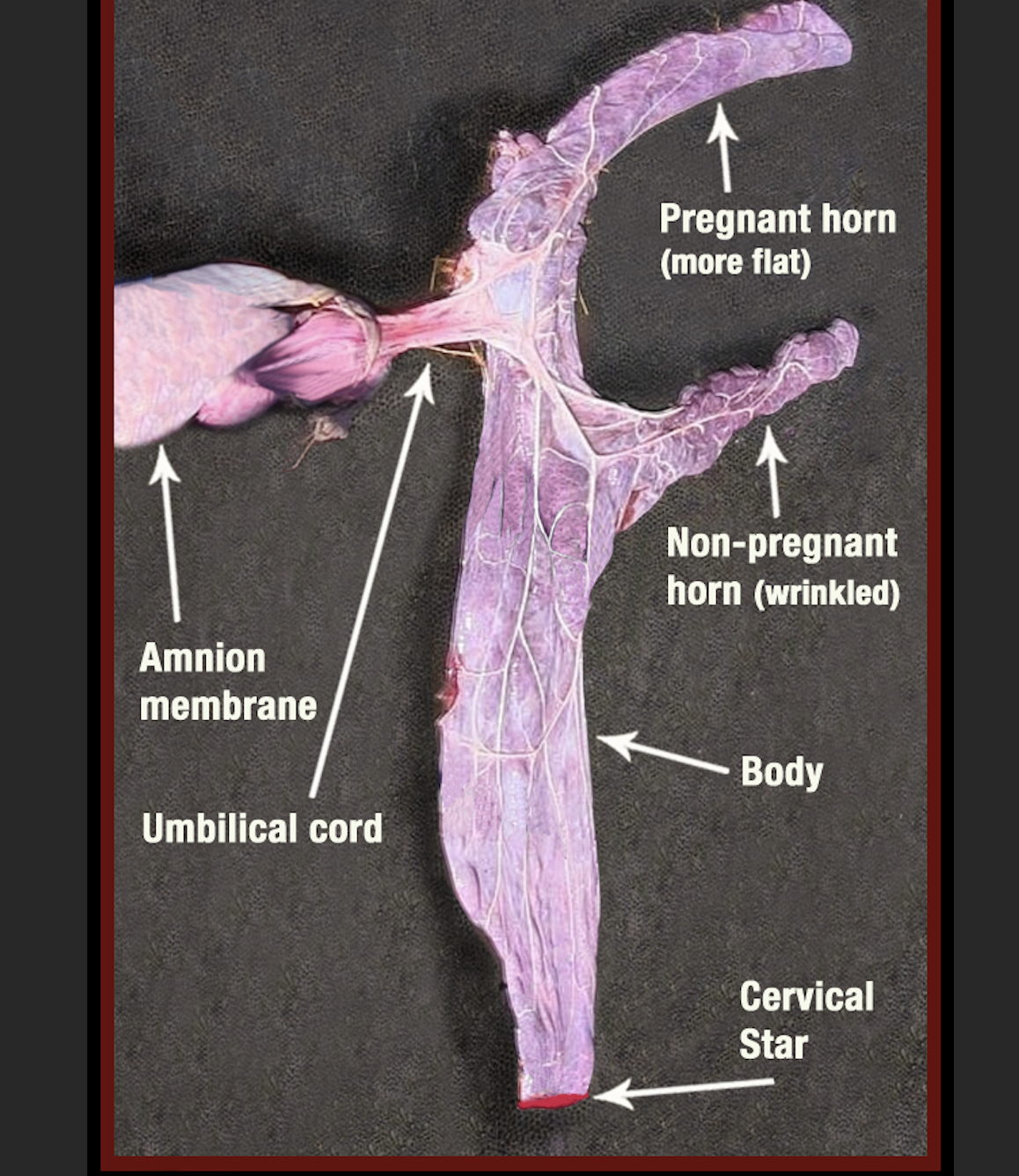
Cervical Star Picture
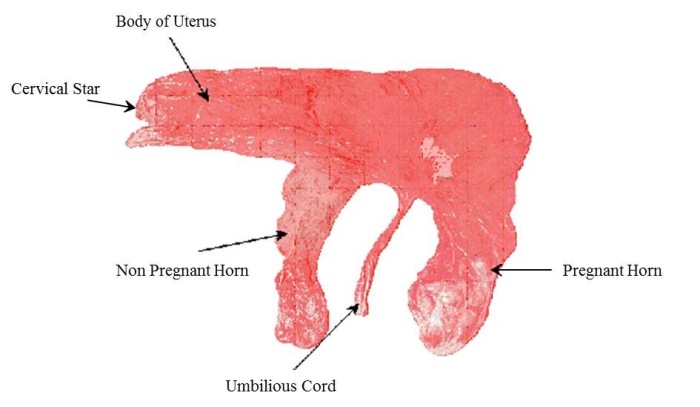
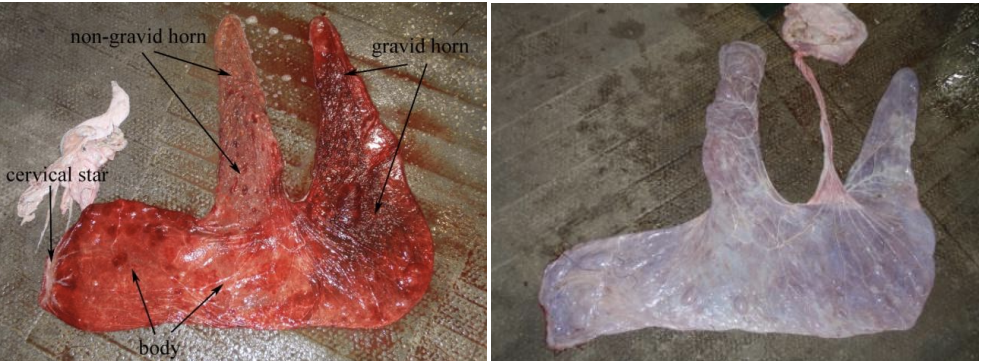
Gravid and non-gravid horns
Gravid horns (pregnant horn) will be more stretched and become more of a problem
Non-gravid horn will be smaller and be more condensed
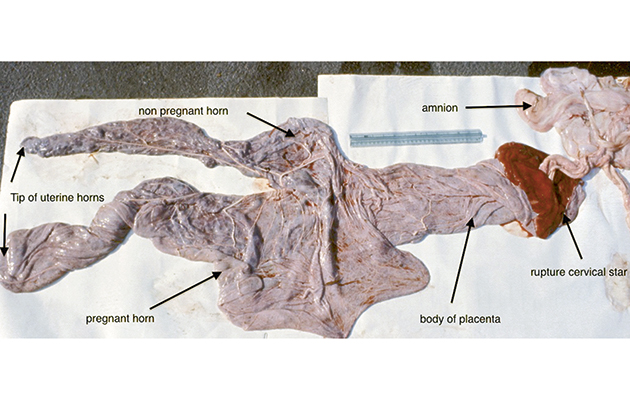
T/F: the shiny side of the placenta will be for the fetus and the velvet side is for the mare
true; the placenta will be turned inside out when delivered so the shiny side will be shown first during delivery but to be inspected, the velvet needs to be on outside and shiny on the inside
Be able to identify placental components
